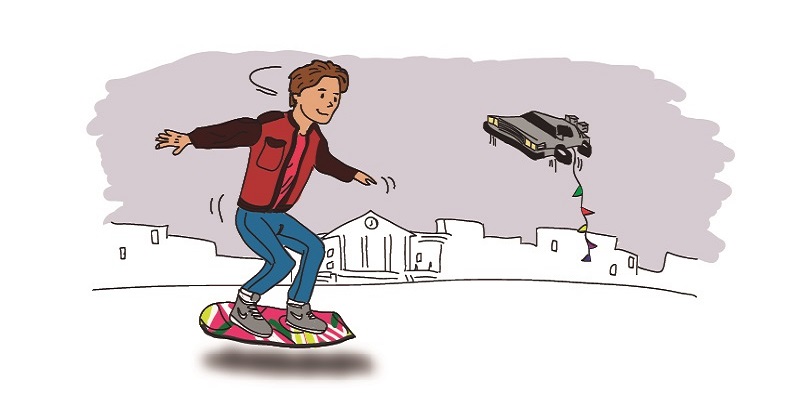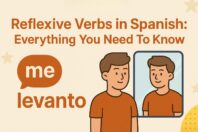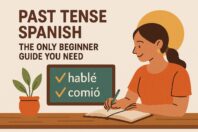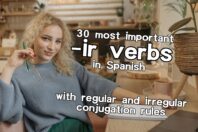DON’T Learn the Future Tense: Use This Spanish Hack “Voy a” Instead

Get our free email course, Shortcut to Conversational.
Have conversations faster, understand people when they speak fast, and other tested tips to learn faster.
More info“This is my favorite Spanish hack by far. Literally, it’s stupidly easy to learn and replaces an entire tense.
Let me ask – what’s the difference between “I’ll see him” and “I’m going to see him”? Almost nothing, right? By using “I’m going to”, instead of “I will”, we cut out learning an entire tense. You should still eventually learn “I will”, but not until the upper intermediate stage.
By learning “voy a”, you’re basically unlocking the future tense of every verb for almost no work.”
Connor, BaseLang CEO
If you don’t want to dig in after that sort of endorsement I don’t know when you will! But really, even if you intend on learning the future tense earlier (which I wouldn’t recommend), this is one of the most important, heavily-used things in Spanish.
So let’s get started.
Present Conjugation of IR
Before we dig into the “a” part of “voy a”, we need to look at the conjugation for the Spanish verb IR, to go (as everything is based on “going to”).
| Yo | Voy |
| Tú | Vas |
| Él / Élla / Eso / Usted | Va |
| Ustedes / Ellos / Ellas | Van |
| Nosotros / Nosotras | Vamos |
Just like many verbs, you can just drop the pronoun. So instead of “yo voy a bailar”, you could just say “voy a bailar”. We’ll keep the pronoun through the lesson to keep it easy on you though.
How it Works: “I’m Going to” in Spanish
Once you have your “I’m going to ______” in place, all you need to do is fill in the blank with the infinitive form (to ____) of the verb you want to use (e.g. comer, jugar, bailar, dormir, salir).
This is what makes this so powerful: you don’t need to conjugate the second verb.
Here’s the exact structure:
Yo + voy a + comer
Subject Verb in present Infinitive verb
Another example:
Camila + va a + bailar
Subject Verb in present Infinitive verb
Now, let’s look at a full conjugation example for the verb to play, jugar:
| Spanish | English |
|---|---|
| Yo voy a jugar | I’m going to play |
| Tú vas a jugar | You are going to play |
| Usted va a jugar (formal) | You are going to play (formal) |
| Él va a jugar | He’s going to play |
| Élla va a jugar | She’s going to play |
| Eso va a jugar | It’s going to play |
| Nosotros(/Nosotras) vamos a jugar | We are going to play |
| Ustedes van a jugar | You are going to play (plural) |
| Ellos(/Ellas) van a jugar | They are going to play |
And now, some more practice examples to really drive this home:
Affirmative form
- Joaquín va a trabajar temprano. (Joaquín is going to work early.)
- Yo voy a recordar tu dirección. (I’m going to remember your address.)
- Ellos van a trabajar mañana. (They are going to work tomorrow.)
Negative form
- Luisana no va a casarse pronto. (Luisana isn’t going to get married soon.)
- No voy a hacer ejercicio hoy. (I’m not going to exercise today.)
- Esa comida no va a saber rico. (That food isn’t going to taste good.)
TIP: “rico” means both “rich” (money) and “tasty” (food). When referring to food, it doesn’t mean “rich”, as in thick/heavy/filling like in English, just tasty.
Questions
- ¿Vas a tomar café? (Are you going to drink coffee?)
- ¿Joel va a llamar por teléfono? (Is Joel going to call by phone?)
- ¿Va a despertar pronto Fátima? (Are you going to rest soon Fátima?)
That’s it! Really simple. Make sure you get this down pat, as it’ll be one of the things you use most.
TIP: Click here for free access to our Private Memrise flashcards, where you can train every lesson, including this one. They’re the same flashcards our students use! Click here for that.



